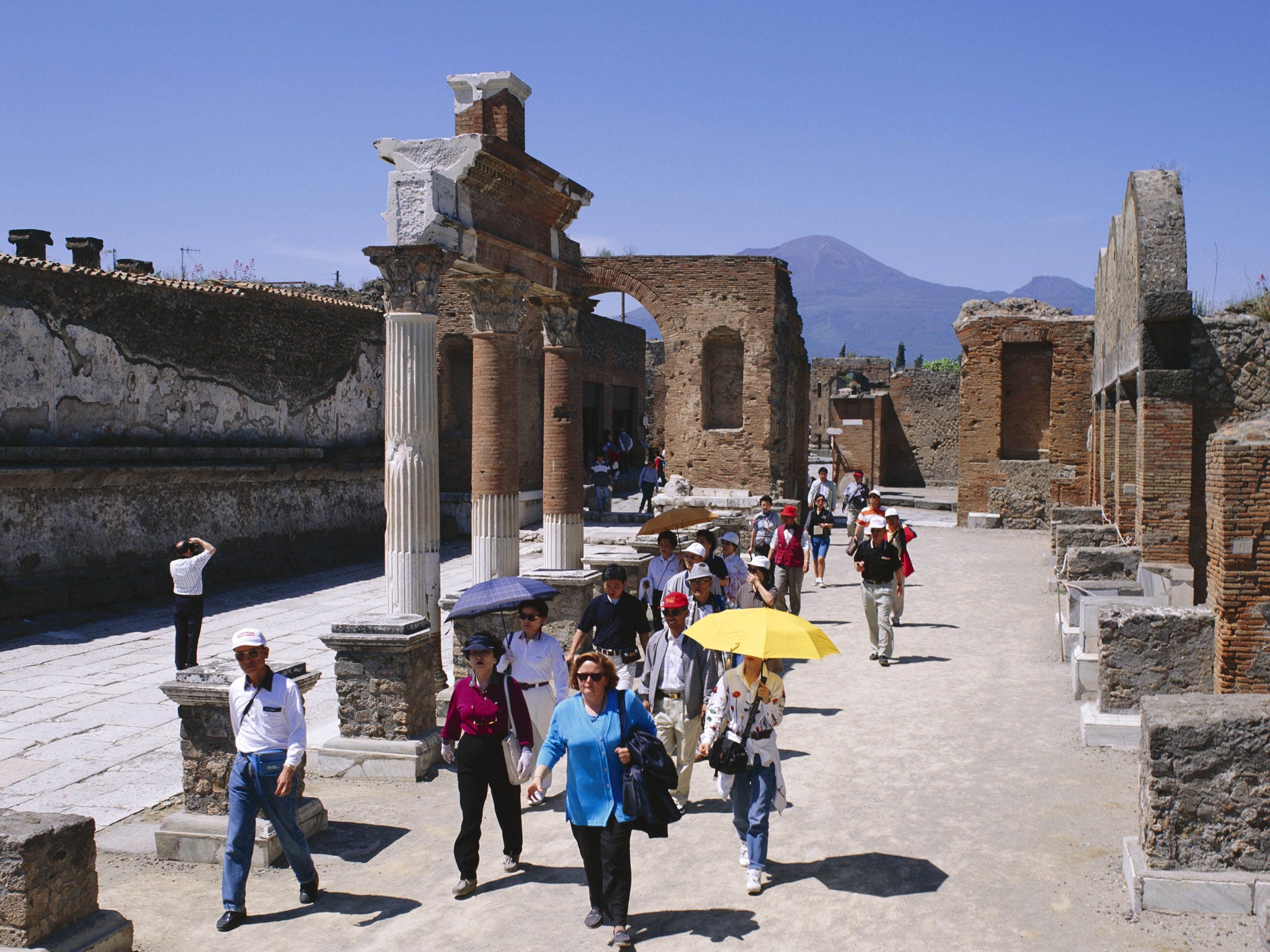Now German scientists are having to bail out crumbling Pompeii
Pompeii has been trampled by millions of tourists

Your support helps us to tell the story
From reproductive rights to climate change to Big Tech, The Independent is on the ground when the story is developing. Whether it's investigating the financials of Elon Musk's pro-Trump PAC or producing our latest documentary, 'The A Word', which shines a light on the American women fighting for reproductive rights, we know how important it is to parse out the facts from the messaging.
At such a critical moment in US history, we need reporters on the ground. Your donation allows us to keep sending journalists to speak to both sides of the story.
The Independent is trusted by Americans across the entire political spectrum. And unlike many other quality news outlets, we choose not to lock Americans out of our reporting and analysis with paywalls. We believe quality journalism should be available to everyone, paid for by those who can afford it.
Your support makes all the difference.Germany, which has already helped bail out Italy’s fragile economy, is now coming to the rescue of ancient Italian heritage. Its scientists are set to invade Pompeii next summer as efforts to save the celebrated but crumbling site attract international attention.
A 10-year research project led by experts from the Technical University of Munich and Fraunhofer Institute in Stuttgart will, say its leaders, prevent the world heritage site of Pompeii “from falling into further ruin”.
Having been buried under ash from Mount Vesuvius almost 2,000 years ago, the Roman city of Pompeii rose again following its rediscovery in the 16th century to become one of the world’s most famous historic sites and tourist attractions.
But over the past decades – under the trampling feet of 2.3 million visitors every year – it has been neglected and is now in urgent need of restoration. The extent of its fragility was seen in 2010 with the collapse of the site’s House of the Gladiators.
The German-led “Pompeii Sustainable Preservation Project” will begin next summer, with the immediate focus on ancient materials needed for reconstruction. In particular the experts aim to rescue many of the site’s fragile frescos. Some have already been moved to museums for preservation.
But scientists are concerned that because of inadequate conservation measures, the exposed walls of the city with their lavish decorations are now visibly disintegrating.
“The first step will be drainage, followed by new types of protective structures. But that is just the start,” said a restoration expert from the Munich Technical University.
Following the collapse of the House of the Gladiators, Il Sole 24 Ore, Italy’s respected business newspaper, said the only solution for Pompeii was private sponsorship for the site. “Precisely because it belongs to all humanity, its management should be taken away from a state that has shown itself incapable of protecting it,” the paper said.
A separate €105m (£90m) restoration project funded by the Italian government and the European Union began at the site earlier this year.
Join our commenting forum
Join thought-provoking conversations, follow other Independent readers and see their replies
Comments